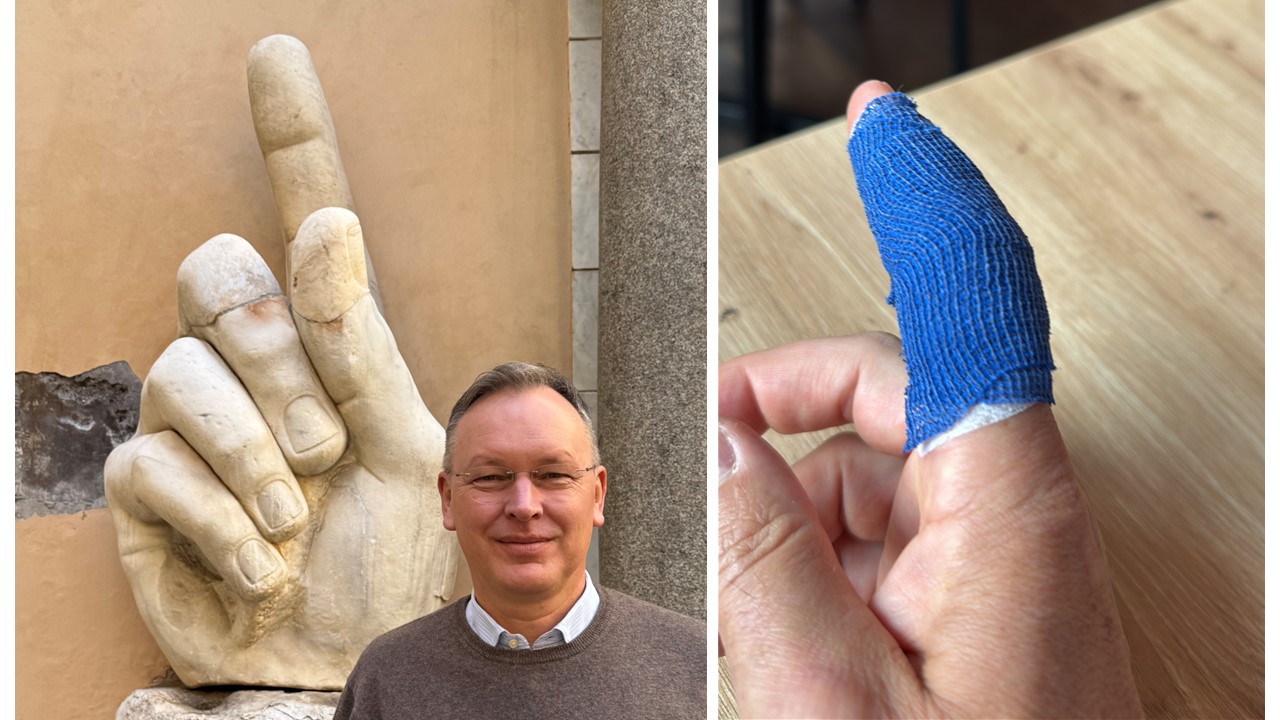

Nora and mutual respect
The other day I badly jammed my index finger playing volleyball – my first real injury in 35 years. I had been lucky for a long time, but I guess it was my turn. Suddenly, I found myself in the world of doctor´s offices. And what can I say: the experiences there are, as so often, quite sobering. As a public health insurance patient, you’re usually treated like an annoying sack of flour, half-heartedly pushed from one corner to another. As a patient, organizational psychologist, and human being, I find myself shocked every single time. Which makes today’s experience even more powerful.
My own "Noah" experience – Let’s call her "Nora"
Change expert Simon Sinek often talks about “Noah,” an employee who behaves completely differently at two different hotels – depending on how he is led. Sometimes funny, charming, and confident – other times resigned and cautious. You can find his video here: https://www.youtube.com/watch?v=vc4FEIYvkQc
Today, I had my own “Noah” moment. Let’s call her “Nora” – I met her today.
Nora is a medical assistant at an orthopedic doctor´s office in Mönchengladbach. Professional, warm, friendly, funny, present. Wow. She told me, “Back in the day,” at her previous practice, the toxic atmosphere there “soaked into her.” She became grumpy, annoyed, unfriendly. Today, that is hard to believe: same person – different environment – totally different energy. And not just her – everyone in this docto´s office came across to me – there’s no other way to put it – as really great.
From the very first moment, I was treated with genuine kindness and attentiveness. The staff looked me in the eye when speaking to me, asked how they could help, and every person wished me a fast recovery at the end of their step in the process. Despite the stress, and surely not a top-tier salary. I was curious and asked about it. “I learned it at home,” said Nora. “Be kind, look people in the eye, treat them with respect.”
Is it that simple? Really?
Have all the other employees in unfriendly practices simply never learned those values at home?
It Begins with Mutual Respect
I asked Nora if the team talks about how they treat patients – whether there's a plan behind the warm, open atmosphere. Her answer: no. It was more like this: she once came to the practice as a patient herself and immediately knew that this was where she wanted to work. Because she was treated with respect – by both the doctors and the team.
And that’s where I believe the key lies: this is a place where genuine, respectful interaction happens. No grand concepts, no (hopefully wise) coaches, no regular consulting sessions. Just leaders (doctors) who treat everyone as equals – respectfully, clearly, kindly, and with presence. That has an impact – and it attracts people like Nora, who pass that attitude on. And that, in turn, affects all the patients – and probably even their health outcomes.
Leadership on Equal Footing Changes Everything
There are these rare islands where you can feel how much the behavior of individuals – especially leaders – makes a difference. Not just for the team, but for everyone in contact with the organization. How many patients left with a smile? How many were happy to come back? How many more follow-up appointments were kept because people felt relaxed about returning, instead of dreading the next appointment and another test of patience?
And how much of this practice’s business success is due to this very culture? (This practice has been growing for years.)
After this experience, I’m left with two questions:
First: Why are we, as organizational consultants, so rarely called by medical practices to help work on customer orientation, values, and mindset as a team? Clearly, there’s an incredible amount to be done.
Second: How can we support teams in medical practices in improving their mindset and the way they treat each other – and their patients?
(Spoiler: these teams probably include, first and foremost, the doctors involved.)


